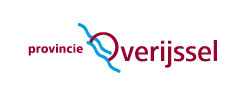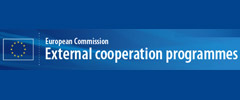UN decision to adopt water as human right underlines importance of core areas of WECF’s work
Newly acquired human right is main step forward for the poor and vulnerable, in particular women and children
29.07.2010 |Margriet Samwel
See the WECF press release here
For many years Bolivia and other countries have been calling to have the right to water and sanitation recognized as a basic human right. At the last World Water Forum in 2009 in Istanbul the ministerial declaration still refused to do so, as some countries - in particular those with large hydro dam projects - worried about transnational water conflicts.
However, there was already enough basis to take this step. The CEDAW, the Convention on the Elimination of all forms of Discrimination against Women, already assures the right to water for rural women (article 14). Too often, women because of lack of landrights, can not claim their water rights. Too often, large international companies can empty the aquifiers for their softdrink production – to name an example – and leave small farmers without a drop for survival. It is the role of governments to protect their people, and the most vulnerable.
What is essential is to learn from good practices; for instance, how countries do achieve access for all, at affordable cost, and have mechanisms to support vulnerable groups who are unable to pay for the service provision of safe water and sanitation, providing a basic quantity of water for free for each person.
Sascha Gabizon, Executive Director of WECF states: “The human right to sanitation has been little or not implemented so far, sanitation often does not have sufficient policy priority, and as a women’s network we are particularly worried about the lack of access to safe sanitation for school children in many, if not most, countries of this world. Girls need access to school toilets, separate from boys, with the possibility to close the doors, where menstrual hygiene is taken care of, and where girls are not harassed”.
WECF calls on all governments to commit to providing the right for each child to safe school sanitation taking girls special needs into account. To assure that these commitments are followed and that this goal can be reached, indicators and gender specific monitoring needs to be introduced. At the same time, the right to sanitation should not infringe the right to safe water. Building a toilet without safe treatment of human faeces, often leads to pollution of drinking water sources. Therefore WECF has build sustainable toilets for more than 5000 poor people and 10.000 school children in Central Asia , Caucusus and Eastern Europe in the past 2 years, making sure faeces are composted for safe use as soil fertilizer, and clean and hygienic indoor toilets for households and schools.
Related News
Meet the Winners of the Gender Just Climate Solutions Award at COP24
On the 70th anniversary of the Universal Declaration of Human Rights, we awarded Gender Just Climate Solutions Winners at the climate negotiations in Katowice, Poland
11.12.2018
#Ruralwomen: join our Women2030 campaign!
15.10.2018
Congratulations Sascha!
Named thirty-third most influential sustainability fighter in the Netherlands
08.10.2018
Calling for periods free from plastic & hazardous chemicals
Letter to Frédérique Ries, MEP, European Parliament on behalf of the #BreakFreeFromPlastics movement
04.09.2018






































